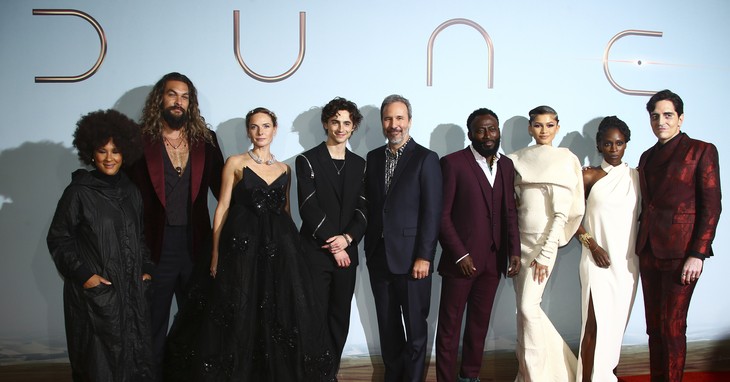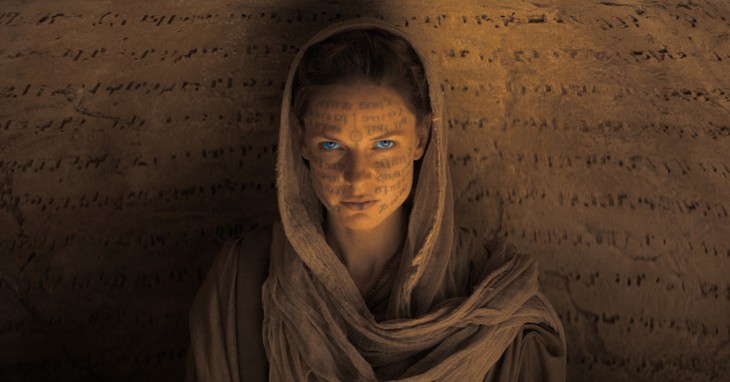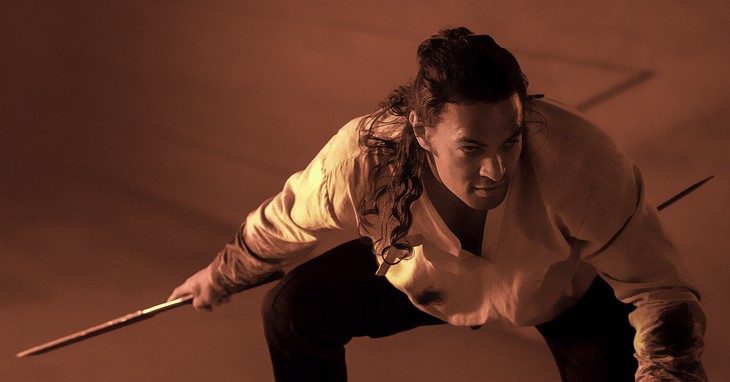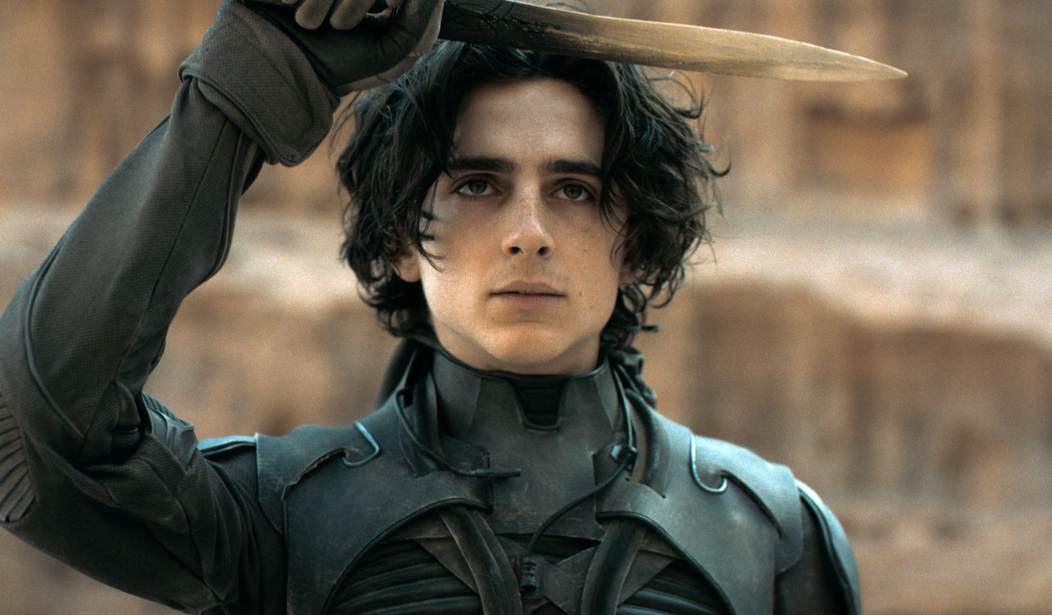Frank Herbert’s “Dune” is a novel you might not know about but authors and writers whose works you enjoy know about the series. The book and its sequels are so influential that even the most famous sci-fi universe of all time, Star Wars, ripped directly off of Herbert in so many ways. It’s a book of war, religion, political intrigue, familial bonds, and tyranny, and giant sandworms.
The book is long and complicated, but Herbert still manages to make it a thrilling page-turner.
My loyal readers will know a few facts about me and one of those is that I’m a huge lover of sci-fi. I’m the guy who went to see every recent Star Wars movie hoping against hope that this time the series would redeem itself. They never did, and the only place I could really find any good sci-fi occurred in the realm of video games.
Despite my fears that it would turn out horribly, my excitement for Denis Villeneuve’s take on “Dune” couldn’t be contained. Firstly, it’s my humble opinion that Villeneuve hasn’t made a bad movie yet. He’s a director that can make someone staring into the distance a mesmerizing spectacle. His approach to cinematography adds both beauty and gravitas to every almost scene.
But I knew even Villeneuve has his work cut out for him with Dune. For those who have never stepped foot into Herbert’s vision of the distant future, the book is heavy with information that would take a long time to digest and sort out. There are factions on factions, plots within plots, and even a backstory before the main story that could rival J.R.R. Tolkien.
There have been a few attempts to bring Dune to the screen, and none of them could be considered successful. The most famous of these is David Lynch’s adaptation in 1984, a film that did its absolute best to bring the scope and size of the “Dune” universe into focus but didn’t quite get there.
If anyone was going to give Herbert’s creation another live-action attempt and succeed, it was going to be Villeneuve. His use of scope, size, and storytelling seems very in rhythm with Herbert’s.
So how did he do?
I’ve now seen Villeneuve’s Dune twice, and I loved it just as much the second time if not more than the first.
I’ll keep this review spoiler-free.
I would give a rundown of the movie splitting the good and the bad into two different parts of this article, but the bad is actually rather minuscule and even some of it is just issues that couldn’t be helped. I’ll, instead, lace complaints in with the review.
Let’s start with the obvious question for many “Dune” fans. Did Villeneuve capture the story well?
It’s hard for me to figure out a way that it could have done better. There were scenes from the book that was, of course, altered or cut from the film to prevent it from dragging on or becoming too expositional. There was enough exposition as it was, and each of these moments felt as if they were slid into the movie naturally and not dumped on the viewer in some laborious fashion. These informational moments would even be married to character development to save time.
However, if you’re looking for a complete story, you won’t find it in this film. Villeneuve always wanted this movie to be taken in two parts, and he makes good on that vision. As a result, the movie does feel like it just kind of…ends. The moment where it leaves off is, in my opinion, not the best, but Villeneuve does do a fairly decent job of making it clear that the lead characters are stepping into a new world with the last shots of the movie to give the audience a “tune in next time” kind of excitement.
I would say the film also does a very good job of balancing action and intrigue. Herbert never went into full detail about the action-filled moments within the book leaving Villeneuve to fill in the blanks. Despite being a sci-fi tale of war, rebellion, and tyranny, “Dune” is actually more of a political thriller than an action novel. Despite this, even moments where politics is happening, there’s a grandeur to it that stops it from devolving into a room of people talking intrigue together for too long.
Villeneuve also turns little moments into big ones. Stepping off of oppressively large ships is accompanied by an army of bagpipes, the signing of political documents is done in front of troops in ceremonial garb chanting the name of their lord’s house. Even when visual grandeur isn’t an option, Villeneuve uses strange customs, dreadful tension, and a near-perfect musical score to bring the epicness into view.
There were a few casting choices I wasn’t sure about when they were announced, but the movie quickly allayed my fears. Timothée Chalamet seemed a bit too boyish for the role of the story’s protagonist Paul Atreides, but he takes the shift from the reluctant son of a duke to a cold and calculating man bent on revenge with seeming ease. What’s more, this shift happens multiple times in the film, making the performance that much more impressive.

The other protagonist and Paul’s mother, the Lady Jessica, is played by Rebecca Ferguson who is a bit over a decade Chalamet’s senior, but the two work so naturally on screen as mother and son you quickly forget the small age gap. Ferguson manages to convey both the power and fearfulness of Jessica, a mother torn between the love of her family and her duty as a member of a pseudo-religious organization.

Other notable characters include Baron Vladimir Harkonnen played by Stellan Skarsgård. Skarsgard is terrifying in his betrayal and made me think of what Marlon Brando’s Don Corleone would have been like if he was evil. My one complaint was that he didn’t have more scenes and I felt the film would have benefited overall if they did. Atreides commander and expert warrior Duncan Idaho is played by Jason Momoa who acts just like Jason Momoa, though this actually plays to the character’s strengths as a highly competent, loyal, and happy warrior. His presence balances out the seriousness of the film with light humor and good nature.

Despite the film’s solid pacing and well-crafted exposition, strangers to Herbert’s universe are still going to have trouble keeping up with all the factions, politics, and relationships in the story. Villeneuve scatters the power and scope of the Bene Gesserit through various scenes, Baron Harkonnen reveals he and Duke Atreides are actually cousins in one line, and the importance of the universe’s MacGuffin, the “spice,” is definitely highlighted, but what it can do and where it comes from isn’t fully explained. Moreover, viewers will be curious as to why advanced computers don’t seem to exist in this futuristic world, or why humanity has regressed to feudalism, is never touched on.
New fans will find themselves going to YouTube to fill in the blanks and learn the lore as Villeneuve was forced to toss a lot of it out in order to keep a well-paced movie. Newcomers will undoubtedly be left with a lot of questions, and they won’t find these answers anywhere except outside of the movie. While this may seem annoying, it was necessary. Herbert’s “Duniverse” is massive and trying to cram all the information into a single movie is impossible.
All in all, Dune is probably some of the best sci-fi I’ve seen out of Hollywood in years and doesn’t rely on the same flashy visuals for the purpose of selling merchandise as Disney does with Star Wars. To be sure, the visuals are stunning, but nothing is put there specifically to make the audience “ooh” and “aww.” It all contributes to the story in some way. Nothing goes to waste. It really highlights the fact that Star Wars has become sci-fi McDonald’s.
To that end, it doesn’t rely on quippy humor to entertain the audience or relieve stress. There’s a grand total of one joke throughout the film and it’s uttered by Momoa but it serves to show the friend/tutor relationship between Paul and Duncan. It’s a movie that takes the source material seriously and does it justice. It’s a breath of fresh air in a culture that seeks to imbue modern politics or ideologies into anything it gets its hands on.
Yes, oddly, you will find no modern politics in a movie about space politics, and there are many of my readers who may find that to be the best part.
Go see “Dune,” but if you do, I would recommend you go see it in theaters, specifically IMAX. You can view it on HBO in your own living room but like the massive epic that is Dune’s story, its visuals are best experienced where the sounds and sights are just as epic.














Join the conversation as a VIP Member